




Are you tired of looking at dirty aluminium cooker rings on your stove? Keeping your stove sparkling clean doesn’t have to be a daunting task. With a few simple tips, you can effectively clean your aluminium cooker rings and restore their shine.
Aluminium cooker rings can easily become dirty and greasy from everyday cooking. Food spills, oil splatters, and burnt-on residue can accumulate and make your stove look unsightly. However, with the right cleaning techniques, you can remove these stubborn stains and bring back the original lustre of your cooker rings.
To start, it’s important to gather the necessary supplies for cleaning your aluminium cooker rings. You’ll need a mild detergent, a scrub brush or sponge, baking soda, white vinegar, and a microfiber cloth. These cleaning agents are safe and effective for removing stains without damaging the aluminium surface.
One easy and natural method to clean aluminium cooker rings is by using a mixture of baking soda and white vinegar. Start by sprinkling baking soda onto the rings, and then pour white vinegar over them. Let the mixture sit for a few minutes to loosen the grime. Afterward, scrub the rings gently with a brush or sponge and rinse off with water. This method works wonders in removing stains and grease buildup, leaving your cooker rings looking like new.
Discover the Best Methods for Cleaning Aluminium Cooker Rings
Aluminium cooker rings can easily accumulate grime, grease, and stubborn stains over time, making it essential to clean them regularly to ensure your stove stays sparkling. Fortunately, there are several effective methods that you can use to clean aluminium cooker rings and restore their shine. Read on to discover the best methods for cleaning aluminium cooker rings.
Method 1: Baking Soda and Vinegar
This popular natural cleaning method is both affordable and effective in removing stubborn stains from aluminium cooker rings.
- Mix equal parts baking soda and vinegar to create a paste.
- Apply the paste to the cooker rings and let it sit for about 15 minutes.
- Scrub the rings gently with a soft brush or sponge to remove the stains.
- Rinse the rings thoroughly with water and dry them with a clean cloth.
Method 2: Lemon and Salt
Lemon and salt combination acts as a natural abrasive and can effectively remove grease and grime from aluminium cooker rings.
- Cut a lemon in half and dip the cut side in salt to create a scrubbing agent.
- Rub the lemon and salt mixture onto the cooker rings in a circular motion.
- Continue scrubbing until the stains are removed.
- Rinse the rings with water and wipe them dry with a clean cloth.
Method 3: Commercial Aluminium Cleaners
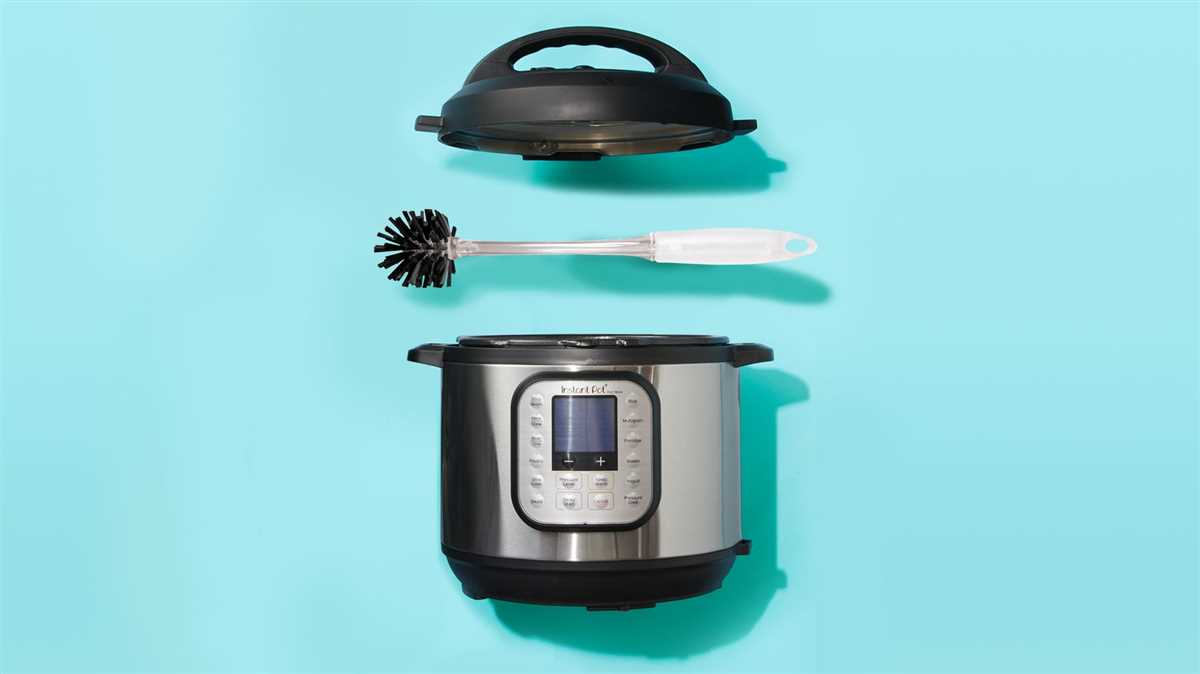
If the stains on your aluminium cooker rings are particularly stubborn, you may want to consider using a commercial aluminium cleaner. These cleaners are specifically formulated to remove tough stains and restore the shine to aluminium surfaces.
- Choose a commercial aluminium cleaner that is suitable for use on cooker rings.
- Follow the instructions on the cleaner’s packaging for the best results.
- Apply the cleaner to the rings, scrub gently, and rinse with water.
- Wipe the rings dry with a clean cloth.
By using these effective methods, you can easily clean your aluminium cooker rings and keep your stove looking sparkling and new. Whether you prefer natural or commercial cleaners, regular maintenance is key to ensuring the longevity and performance of your cooker rings.
Vinegar and Baking Soda: the Ultimate Cleaning Combo
When it comes to cleaning aluminium cooker rings, vinegar and baking soda is the ultimate cleaning combo. These two common household ingredients can effectively remove grease, grime, and burnt-on food from your cooker rings, leaving them sparkling clean.
Why Vinegar?
Vinegar is an acidic substance that is known for its cleaning properties. It can break down grease and remove stains without causing any damage to the aluminium surface. Additionally, vinegar has a natural deodorizing effect, eliminating any unpleasant odors that may be present on the cooker rings.
Why Baking Soda?
Baking soda, also known as bicarbonate of soda, is a mild abrasive that acts as a natural cleaner. It can help remove tough stains and burnt-on food from the cooker rings without scratching the surface. Additionally, baking soda has a deodorizing effect, helping to eliminate any lingering odors.
How to Clean Aluminium Cooker Rings with Vinegar and Baking Soda
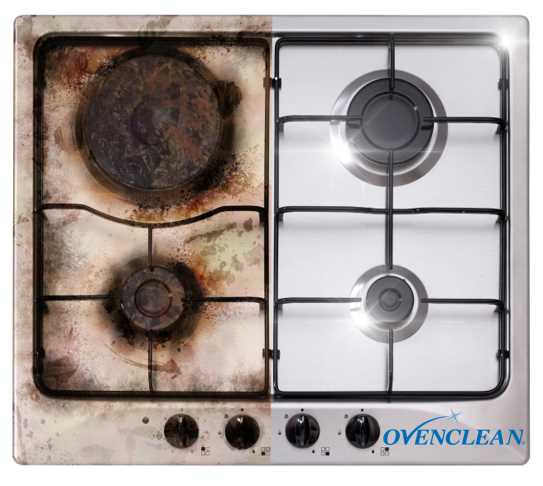
Follow these simple steps to effectively clean your aluminium cooker rings:
- Remove the cooker rings from the stove and place them in a sink or container.
- In a separate container, mix equal parts vinegar and water. For example, you can use one cup of vinegar and one cup of water.
- Submerge the cooker rings in the vinegar solution and let them soak for at least 30 minutes. This will help loosen any dirt or grime.
- In the meantime, make a paste by mixing equal parts baking soda and water. For example, you can use 1/4 cup of baking soda and 1/4 cup of water.
- After the soaking period, remove the cooker rings from the vinegar solution and apply the baking soda paste to any remaining stains or burnt-on food.
- Gently scrub the cooker rings with a soft cloth or sponge, focusing on the areas with stains or burnt-on food. The combination of vinegar and baking soda will create a fizzing action that helps lift away the dirt.
- Rinse the cooker rings thoroughly with water to remove any residue.
- Dry the cooker rings with a clean towel before placing them back on the stove.
Additional Tips:
- For stubborn stains or burnt-on food, you can let the cooker rings soak in the vinegar solution overnight before scrubbing with baking soda.
- Always wear gloves when handling vinegar and baking soda to protect your skin.
- Regularly clean your cooker rings to prevent the build-up of grease and grime, which can become more difficult to remove over time.
Lemon Juice: a Natural and Powerful Cleaner
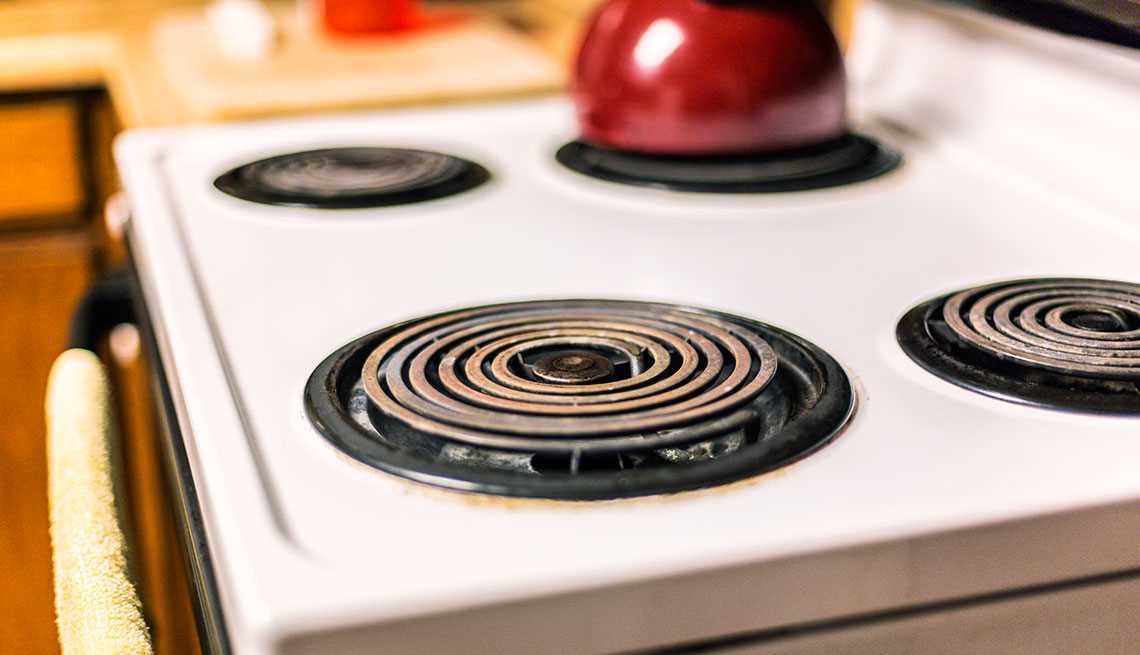
Lemon juice is not only a popular ingredient in cooking and baking, but it is also a natural and powerful cleaner. It contains citric acid, which has strong cleaning properties that can effectively tackle dirt, grease, and stains.
Here are some ways you can use lemon juice as a cleaner for your aluminium cooker rings:
- Lemon Juice and Baking Soda: Create a paste by mixing lemon juice and baking soda. Apply the paste onto the cooker rings and let it sit for a few minutes. Scrub the rings gently with a non-abrasive sponge or brush. Rinse with water and dry thoroughly.
- Lemon Juice and Vinegar: Mix equal parts lemon juice and white vinegar. Apply the mixture onto the cooker rings and let it sit for about 10 minutes. Scrub the rings with a sponge or brush. Rinse with water and dry.
- Lemon Juice Soak: Fill a bowl or basin with lemon juice and place the cooker rings in it. Let them soak for at least 30 minutes or overnight. Scrub the rings with a sponge or brush to remove any remaining dirt or stains. Rinse with water and dry.
Remember to always wear gloves and work in a well-ventilated area when using lemon juice as a cleaner. Test the lemon juice on a small, inconspicuous area of the cooker rings before applying it to the entire surface.
Lemon juice is a natural and safe alternative to chemical cleaners. It not only effectively cleans aluminium cooker rings but also leaves a fresh citrus scent behind. So next time your cooker rings need a deep clean, reach for a lemon and let its natural cleaning power do the work!
Hydrogen Peroxide: a Safe and Effective Solution
Introduction
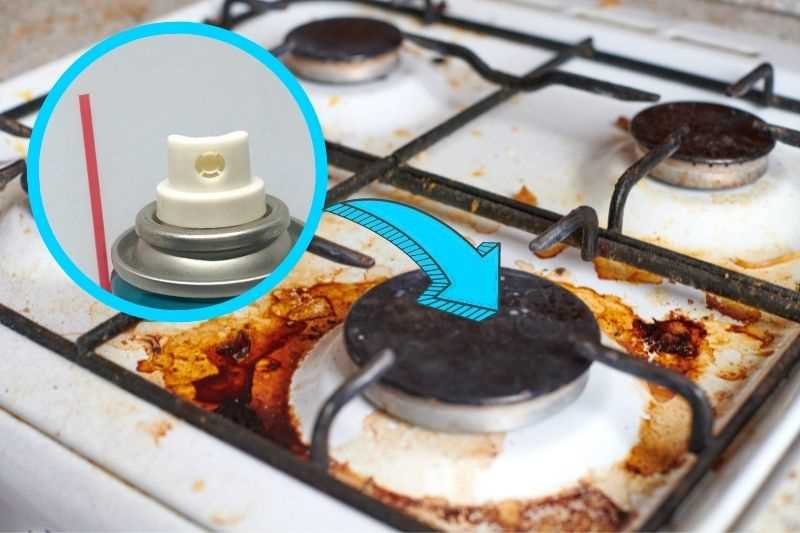
When it comes to cleaning aluminium cooker rings, many people are looking for a safe and effective solution. One such solution is hydrogen peroxide. Hydrogen peroxide is a chemical compound that is commonly used as a disinfectant and cleaning agent. It is made up of water and oxygen, and it can be an excellent choice for cleaning aluminium cooker rings due to its properties.
Benefits of Hydrogen Peroxide
Hydrogen peroxide has several benefits when it comes to cleaning aluminium cooker rings. Firstly, it is a safe and non-toxic solution, making it a suitable option for use in the kitchen. Unlike some harsh chemicals, hydrogen peroxide does not emit strong fumes or leave behind any residue that could be harmful to your health.
Additionally, hydrogen peroxide is an effective cleaner. It has powerful oxidizing properties that can help break down grease, grime, and stains on aluminium cooker rings. This makes it a great choice for removing burnt-on food, oils, and other tough stains that can accumulate over time.
How to Use Hydrogen Peroxide for Cleaning Aluminium Cooker Rings
Cleaning aluminium cooker rings with hydrogen peroxide is a straightforward process. Here is a step-by-step guide:
- Mix equal parts hydrogen peroxide and water in a spray bottle.
- Spray the mixture onto the aluminium cooker rings, ensuring that they are fully covered.
- Let the mixture sit for a few minutes to allow the hydrogen peroxide to work its magic.
- Using a soft cloth or sponge, scrub the cooker rings gently to remove any dirt or stains.
- Rinse the rings thoroughly with water to remove any residue.
- Wipe the rings dry with a clean cloth.
Precautions
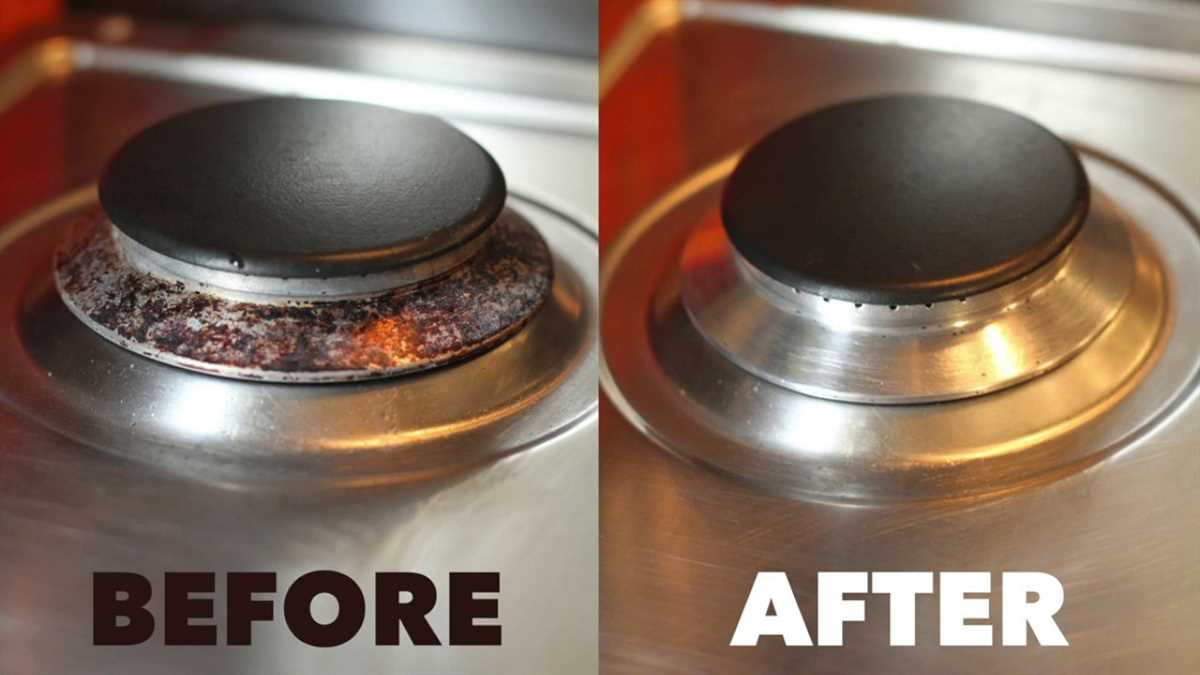
While hydrogen peroxide is generally safe to use, it is essential to take some precautions when handling it. These include:
- Wearing gloves to protect your skin from direct contact with the hydrogen peroxide solution.
- Avoiding contact with eyes and mouth.
- Keeping hydrogen peroxide out of reach of children.
- Read and follow the instructions on the hydrogen peroxide bottle.
Conclusion
Hydrogen peroxide is a safe and effective solution for cleaning aluminium cooker rings. Its non-toxic nature and powerful cleaning properties make it an excellent choice for removing tough stains and grime. By following the simple steps outlined above and taking necessary precautions, you can keep your cooker rings sparkling and maintain a clean and hygienic kitchen.
Scrubbing with Dish Soap: Remove Stains and Grease
One of the most effective methods for cleaning aluminium cooker rings is by using dish soap. This common household item not only removes stains and dirt but also helps to get rid of grease and grime that can accumulate on the rings over time. Here are some steps to follow when using dish soap to clean your cooker rings:
- Gather Supplies: Before you begin, gather all the necessary supplies. You will need dish soap, a sponge or soft cloth, warm water, and a clean towel. Make sure your sponge or cloth is non-abrasive to avoid scratching the aluminium surface.
- Remove the Rings: If possible, remove the aluminium cooker rings from the stove. This will make it easier to clean them thoroughly. If they are not removable, you can still clean them in place.
- Create a Soapy Solution: Fill your sink or a large bowl with warm water and add a few drops of dish soap. Mix the soap and water together to create a soapy solution.
- Scrub the Rings: Dip the sponge or cloth into the soapy solution and start scrubbing the aluminium cooker rings. Focus on areas with stains, dirt, and grease buildup. Use gentle but firm circular motions to remove the dirt.
- Rinse with Water: After scrubbing, rinse the rings with clean water to remove any soap residue. You can use a spray bottle or simply run them under the faucet.
- Dry the Rings: Finally, use a clean towel to dry the aluminium cooker rings thoroughly. Make sure they are completely dry before placing them back on the stove.
Using dish soap to clean aluminium cooker rings is a simple and effective way to keep your stove sparkling. Regular cleaning with dish soap will help prevent stains and grease buildup, ensuring that your cooker rings look and perform their best.
Preventive Measures: Tips to Keep Your Stove Sparkling
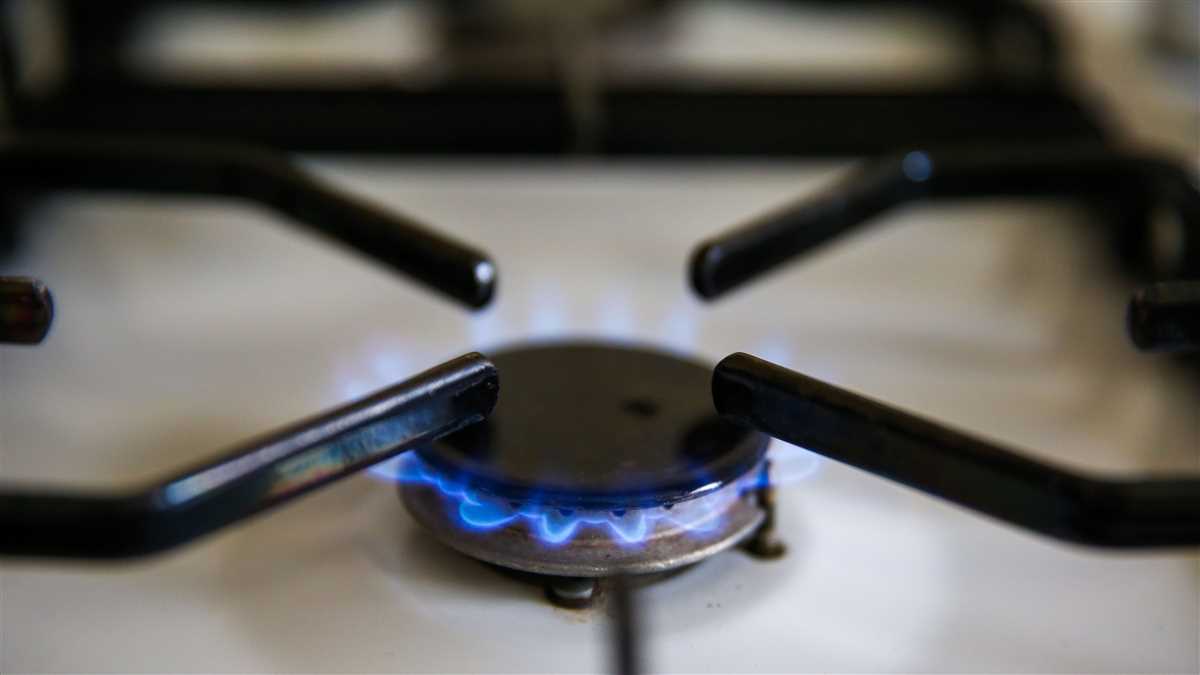
Keeping your stove sparkling clean not only enhances the overall appearance of your kitchen, but it also helps to maintain its functionality and prolong its lifespan. Here are some preventive measures you can take to keep your stove looking like new:
1. Clean Spills Immediately
Whenever you have a spill or boil-over on your stove, make sure to clean it up immediately. Leaving spills for too long can lead to them getting hardened and difficult to remove, requiring more effort and harsher cleaners.
2. Use Stove Protectors
Consider using stove protectors or liners on the burner rings. These can help prevent spills and drips from reaching the direct surface of the burner, making it easier to clean and maintain.
3. Avoid Harsh Cleaners
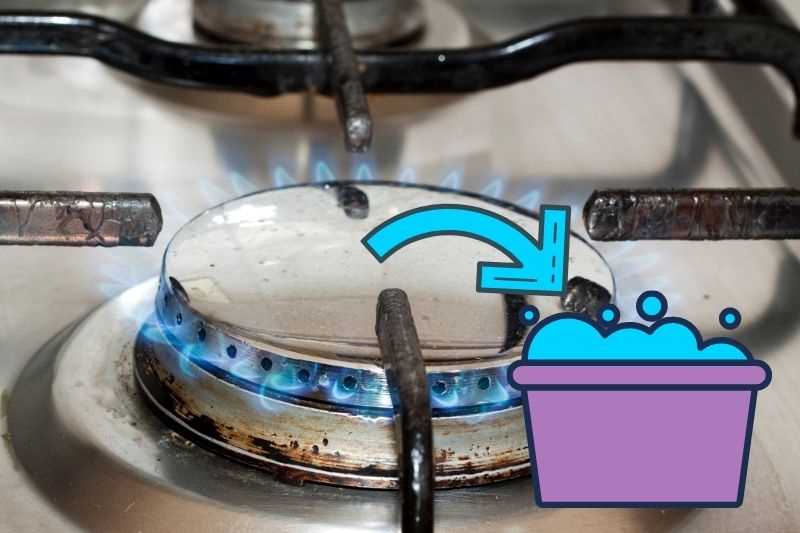
When cleaning your stove, avoid using harsh cleaners that can damage the surface of the burner rings. Instead, opt for mild dish soap and warm water. Gently scrub the rings with a soft sponge or cloth to remove any residue.
4. Regular Maintenance
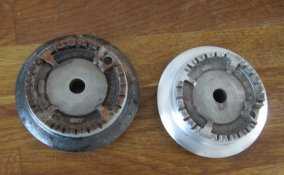
Perform regular maintenance on your stove to keep it in top condition. This includes checking for any loose or damaged parts and ensuring that the burner rings are properly seated. Regularly inspect and clean the burner ports to ensure proper gas flow and prevent clogs.
5. Use Proper Cookware
Using the right cookware can help prevent spills and stains on your stove. Choose cookware with flat bottoms and use lids whenever possible to reduce splattering. Avoid using cookware with rough or abrasive surfaces that can scratch the burner rings.
6. Keep Stove Ventilated
Proper ventilation is important to prevent grease and food particles from settling on your stove. Use the stove’s exhaust fan or open windows to create airflow and reduce the buildup of residue.
7. Regular Cleaning Routine
Incorporate regular cleaning of your stove into your household routine. Wipe down the burner rings after each use and deep clean them once a month. This will help prevent the accumulation of grease and grime, making future cleaning easier.
By following these preventive measures, you can keep your stove sparkling clean and maintain its performance for years to come.
FAQ
What are the most effective tips for cleaning aluminium cooker rings?
The most effective tips for cleaning aluminium cooker rings include using a mixture of baking soda and water, soaking the rings in vinegar overnight, and scrubbing with a non-abrasive sponge.
Can I use any cleaning product on aluminium cooker rings?
No, you should avoid using abrasive cleaning products on aluminium cooker rings as they can scratch the surface. It is best to use mild detergents or natural cleaning solutions.
Is it necessary to soak the aluminium cooker rings in vinegar?
Soaking the aluminium cooker rings in vinegar is not necessary, but it can help to loosen stubborn stains and make them easier to remove. It is recommended to soak them overnight for best results.
Are there any specific tools or equipment I need to clean aluminium cooker rings?
No, you don’t need any specific tools or equipment to clean aluminium cooker rings. A non-abrasive sponge or cloth, mild detergent or natural cleaning solution, and a soft brush for scrubbing are usually sufficient.
How often should I clean my aluminium cooker rings?
It is recommended to clean aluminium cooker rings on a regular basis, ideally after each use. This will help to prevent stains and build-up and keep your stove sparkling.
What should I do if the stains or build-up on my aluminium cooker rings are too stubborn?
If the stains or build-up on your aluminium cooker rings are too stubborn, you can try using a paste made of baking soda and water. Apply the paste to the rings, let it sit for a few minutes, and then scrub with a non-abrasive sponge. This should help to remove the stubborn stains.
Are there any natural cleaning solutions I can use to clean aluminium cooker rings?
Yes, you can use natural cleaning solutions like vinegar, lemon juice, or a mixture of baking soda and water to clean aluminium cooker rings. These solutions are effective and environmentally friendly.











